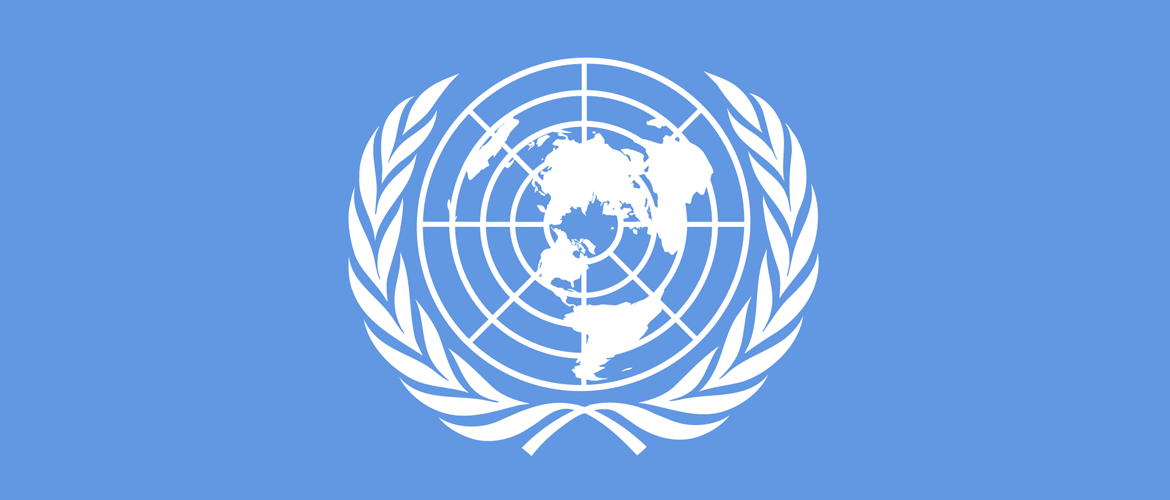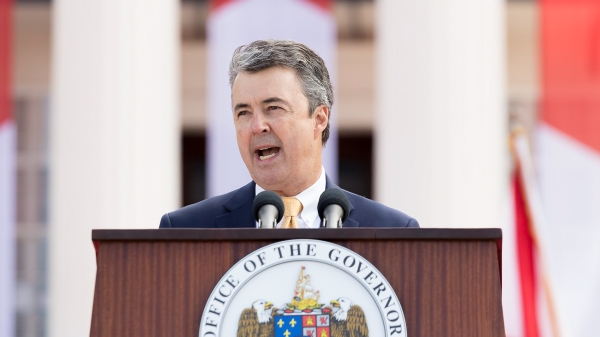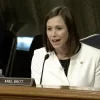By Brandon Moseley
Alabama Political Reporter
On Monday, December 14, Alabama Auditor Jim Zeigler (R) released a statement critical of a UN Report which was lammed Alabama after a visit to the State.
According to Zeigler, the three-member UN investigative team calling themselves “rapporteurs” conducted investigations in Alabama, Texas, and Oregon earlier this month. The group released a preliminary report last Friday, Dec. 11, critical of Alabama laws and called for making the Universal Declaration of Human Rights “binding” on all states. The report also criticized teaching abstinence in sex education, restrictions on access to abortions, and prosecution of prostitutes.

Zeigler warned, “The UN is preparing to try to dictate to Alabama what we must do on abortion, contraceptives given to youth, sex education in schools, tolerance of alternative sexual orientation and other ‘progressive’ issues.”
Zeigler expressed his disappointment that no other officials in Alabama objected to the UN involvement here.
The “UN Working Group on the issue of discrimination against women in law and in practice” is finalizing its ten day country mission to the United States. The expert group’s delegation was comprised of Eleonora Zielinska (Poland), Frances Raday (Israel/United Kingdom) and Alda Facio (Costa Rica) held meetings in Washington D.C. and visited the states of Alabama, Oregon and Texas.
Frances Raday said in a statement, “We want to express our sincere appreciation to the Government of the United States for having invited us to conduct this country visit. We are grateful to all our interlocutors, officials at the Federal and state levels and members of civil society, including women’s organisations, practitioners and individual women who shared their experiences with us.”
According to the group’s report, “The United States opened the door to a frank interchange regarding both good practices and gaps in US women’s enjoyment of international human rights. We acknowledge the United States’ commitment to liberty, so well represented by the Statue of Liberty which symbolizes both womanhood and freedom. Nevertheless, in global context, US women do not take their rightful place as citizens of the world’s leading economy, which has one of the highest rates of per capita income. In the US, women fall behind international standards as regards their public and political representation, their economic and social rights and their health and safety protections.”
According to the report, “In 2010 and 2015, in the framework of its Universal Periodic Review, the US government committed to ratify the Convention on the Elimination of All of Forms of Discrimination Against Women (CEDAW) but this commitment has not yet been implemented. Resistance to ratification of CEDAW reflects the opposition of a powerful sector of society to the Convention’s formulation of women’s international human right to equality. This political resistance has also consistently blocked efforts to pass an Equal Rights Amendment, which would entrench women’s right to equality in the US Constitution.”
The report slammed, “The political rhetoric of some of the candidates for the Presidency in the upcoming elections has included unprecedented hostile stereotyping of women; when there are increasingly restrictive legislative measures in some states and violent attacks to prevent women’s access to exercise of their reproductive rights; and when there is an increase in the rate of women living in poverty, a persistent wage gap and increasingly precarious employment.”
Even though women hold four out of 15 members of the cabinet, 19.4 percent of Congressional seats, and 24.9 percent of State legislature seats the group rates the United States only 72 in legislative representation.
The group blamed the difficulty women face in fundraising for campaigns for the disparity. “The role of money in political campaigns has grown significantly in the last decades and has drastically altered the landscape for elections and political participation. Women’s difficulty in fundraising is considered to result from complex causes. In particular, it is a result of exclusion from the predominantly male political networks that promote funding. It also results from underlying factors, such as negative stereotypes and biased presentation of women in the media, which adversely affect both women’s fundraising ability and their political candidacy…Our group regards the objective difficulties women face in raising campaign funding as a serious limitation on women’s opportunities for political representation and is deeply concerned that the removal of limits on campaign funding by the Supreme Court threatens to exacerbate this situation.”
The report said, “Our group is concerned that changes in voter identification laws, such as those in Alabama, which increase bureaucratic requirements for voter identification, in particular problematic for women who change their name in marriage and reduce the number of voting centers, can make registration and voting less accessible for the poor, of whom a majority are women.”
The group recommended that, “Adequate legal representation, be regarded as a civil right which, where necessary, should be publically funded.”
The group reported, “We are shocked by the lack of mandatory standards for workplace accommodation for pregnant women, post-natal mothers and persons with care responsibilities, which are required in international human rights law.”
The group also expressed concern that, “Women’s earnings differ considerably by ethnicity: Afro-American, Native American and Hispanic women have the lowest earnings. Despite the existence of the 1963 Equal Pay Act and Title VII, federal law does not require equal pay for work of equal value.” The Group called for the US to ratify the ILO Domestic Workers Convention.
The report also cited the United States for being, “One of only two countries in the world without a mandatory paid maternity leave for all women workers. As of 2014, paid maternity leave is provided by legislation in 3 states and in Federal government employment but it is only for six weeks, which is beneath the international minimum of 14 weeks. The Group regards it as vital that 14 weeks paid maternity leave for pregnancy birth and post natal related needs be guaranteed for all women workers in public and private employment and advises that best practice is payment from a social security fund which does not impose the direct burden on employers.” “The percentage of women in poverty has increased over the past decade, from 12.1 percent to 14.5 percent, with a higher rate of poverty than men, affecting predominantly ethnic minorities, single parent families and older women.” The group urged raising the minimum wage, promoting employment for women, eliminating the wage gap, and addressing residual poverty through the social security system.
The groups said that in the US, “Poverty may result in homelessness which exposes women to higher levels of violence and vulnerability. Furthermore, interlocutors pointed out that victims of domestic violence are often numbered amongst the homeless, either because they have been evicted as a result of the violence or because they have fled from their violent partner. Solutions should include effective protection orders, increased availability of shelters, housing support, prioritizing eligibility particularly for single mother households and those facing heavy unpaid care burdens.”
The report said that women business owners, “Face greater barriers in obtaining low cost capital from sources such as the Small Business Administration and clearly need support in order to achieve equal economic potential. However, the Small Businesses Administration has a stated goal of awarding only 5 percent of federal contracts to women-owned businesses. Furthermore, it is reported that this goal has never been reached in practice.”
The group stated that, “International human rights law requires the establishment of social protection floors for core economic and social needs, provision for paid maternity leave, and the taking of all appropriate measures to produce de facto equality between all women and men in the labour market and in women-owned businesses. It is not for our group to suggest how these minimum standards should be achieved but only to point out how the United States, as economic leader of the world, lags behind in providing a safety net and a decent life for those of its women who do not have access to independent wealth, high salaries or economic support from a partner or family.”
The group praised the Affordable Care Act (ACA) and the expansion of Medicaid, but lamented that there is still no universal health coverage in the country. The group cited Texas and Alabama for allegedly not allowing lawfully residing immigrants to enroll in Medicaid even after completion of the federal waiting period of five years.
The group supports, “The ACA’s requirement that new private health plans cover contraceptive counselling, without out-of-pocket costs. However, we are concerned that the Supreme Court’s recognition, in Hobby Lobby, of an exemption on grounds of freedom of religion to opt out of contraceptive insurance for employees, will deprive some women of the possibility of accessing contraceptives. The Group would like to recall that, under international human rights law, states must take all appropriate measures to ensure women’s equal right to decide freely and responsibly on the number and spacing of their children which includes women’s right to access contraceptives.”
The group wrote that. “Adequate and quality sex education in schools was lacking in many curricula. We learned that in many schools, only abstinence was taught instead of providing objective and scientifically based sex education which is a key element of health policy.”
While the group supported, “The constitutional guarantee under Roe v. Wade for a woman to be able to choose to terminate a pregnancy in the first trimester prior to viability” it cited the United States for placing ever increasing barriers to prevent women’s access to abortions specifically: the 1976 Hyde Amendment preventing federal Medicaid and Medicare coverage for abortions except in cases where the life of the woman is in danger, or in cases of rape and incest; compelling women to undergo ultrasounds; waiting periods; withholding of early pregnancy abortion medications; and imposing burdens on the licensing of clinics.
The group cited the US for constant threats, harassment and vandalizing of abortion clinics, specifically citing Alabama. “Alabama has a history of severe violence against abortion providers including the killing of Dr. David Gunn, in 1993, the first doctor to be murdered for performing abortions in the United States…The recent massacre in the Colorado family planning centre, which occurred just before the start of our visit, once again demonstrated the extreme hostility and danger faced by family planning providers and patients. We encourage the adoption of the Woman’s Health Protection Act, which would prohibit states from enacting restrictions on reproductive health care providers that interfere with women’s personal decision making and block access to safe and legal abortion services; and to require all hospitals to provide these services and insurance schemes to provide coverage for abortions to which women have a right under US law.”
The group’s preliminary findings and conclusions will be developed and presented in a more comprehensive report to the Human Rights Council in June 2016.
The UN Working Group on the issue of discrimination against women in law and in practice was created by the Human Rights Council in 2011. The Working Group is composed of five independent experts: the Current Chair-Rapporteur Eleonora Zielinska (Poland), the Vice-Chair Alda Facio (Costa Rica) and the other members Emna Aouij (Tunisia), Kamala Chandrakirana (Indonesia), and Frances Raday (Israel/United Kingdom).


















































